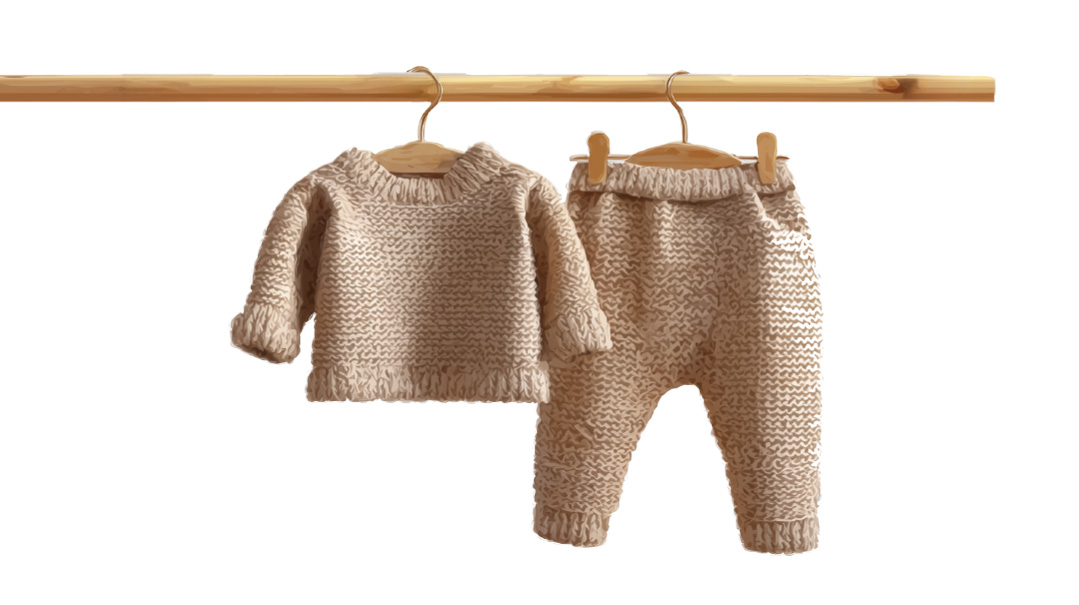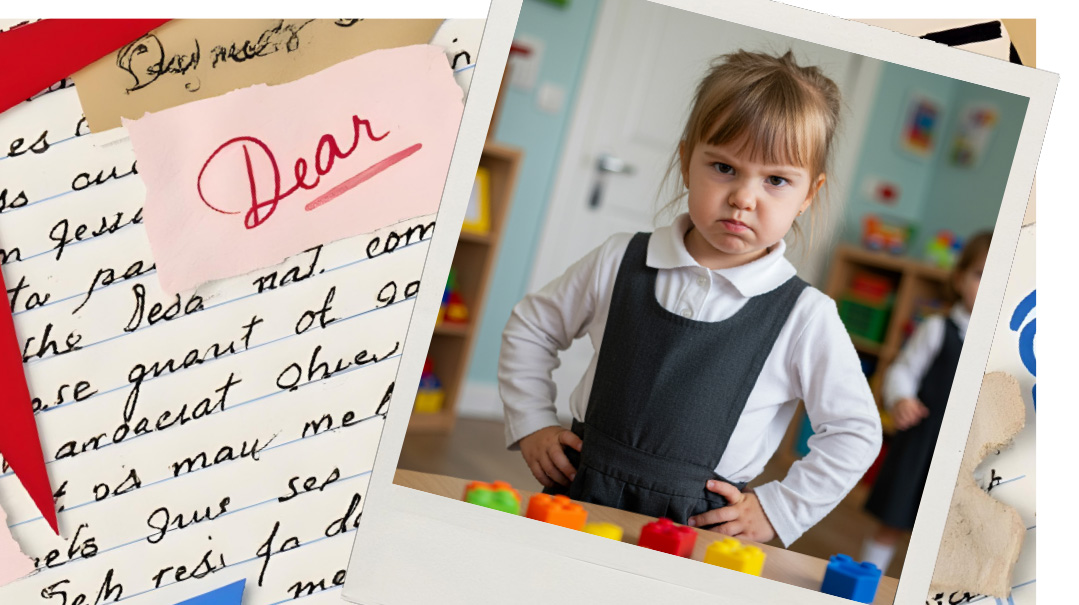Carve a Space

In school, she ran the show. But she couldn’t reach her own son

"Remember, you’re playing with a life,” Mrs Delmar chokes out, and the line goes dead.
Bluma puts the phone down, a bit too loudly.
Mothers. As if she didn’t know. Rikki Delmar. She writes the name in block capitals in her notepad, underlines it, then draws a rectangle around it. Let her come along on the school shabbaton or not?
She looks up and 500 faces are smiling at her from five 10 inch by 12 inches on the bulletin board. The five graduating classes she’s overseen. She’s been at Ateres for 22 years, first as general studies teacher, then as assistant principal, and now she’s made it to the top.
The pictures blur. Blue and white and forever smiles. She looks over the faces. Last year’s Rikki Delmar. The girl who missed more than she was there; the ringleader from two years ago; the girl who broke the fire alarm glass. They’d graduated, they all had. Rikki would too. You had to keep an eye to the end, you couldn’t get dramatic like Rikki’s mother. Bluma’s been here long enough to know that.
The bell goes. She gives herself a once-over in the mirror, straightens her sheitel. Very dark brown. Once it had highlights, but those don’t fit with who she is now.
Sara Lipkin, 12th-grade mechaneches, is standing near the copy machine. Baila Hoffert is making copies and talking to her earnestly. Her voice is too low for Bluma to catch anything but she can sense the urgency, the sharing and advice as the copier spews out booklets.
Baila absently picks up a booklet. “Oy, these all came out single-sided.” She smacks her forehead.
Duh, Bluma wants to say.
She goes into the teachers’ room, interrupts a conversation about summer camp to ask Esti Lieber about her math class.
“Camp Kayitz,” she hears Miriam Feld say somewhere behind them. “We’re applying there.”
Shmuli also went to Kayitz. In the summer of ninth grade, when he was still getting by. Shmuli. She sighs, and Esti Lieber looks wounded. No. Bluma rearranges her features. Tries to focus.
“The thing is, Mrs. Levine, they probably just need to be tracked,” Esti tells her. “A good number of them really aren’t coping with the material.”
She nods briskly, as if to say leave it to me. Esti sits back down with Miriam Feld and the others.
Bluma doesn’t linger. Her territory is beyond the doors. The inner sanctum. She looks fleetingly as Miriam moves over to make room for Sara, then walks toward her door: Principal. Apex of the pyramid.
It’s lonely at the top. People bandied the expression around, because they were jealous, she used to think. Now she knows.
The secretary comes in with a pile of envelopes. “Mostly permission slips and money for the shabbaton the girls have dropped off,” she says briskly and leaves.
Bluma frowns at the pile. Should Rikki be allowed to come along on the school shabbaton? Or was her infraction too severe?
An envelope catches her eye. Labeled “Mrs. Levine,” it clearly doesn’t contain a permission slip. She scans it quickly. It’s from Tammy Geller, tenth-grade science teacher. It’s not the school, it’s not the girls, it’s just tenth grade, I’m out of my league.
A letter of resignation? Now, midterm? A letter? She didn’t even have the decency to do this face-to-face? Bluma scans the short note again, words blurring. She’s had to let more than one teacher go, but she’d never had a teacher go on her in the middle of term.
The tenth grade isn’t an easy class; she’d heard murmurs of complaints before. It wasn’t only Rikki. She pushes aside her worries about the class. More pressingly, she needs a new science teacher.
Bluma knows he’s home before she sees him.
Suit jacket puddled on the floor as if it weren’t brand new and worth half a week’s salary. Why did they even have hangers?
She hears him chuckle to himself from the living room. Likely sprawled on the couch. She’ll come in and ruin his calm. Like she does for the teachers. But this wasn’t about being principal; let any mother try to deal with a grown son trying on a lifestyle for size. Shmuli was only 18, and had been through four yeshivos. Now he was in some sort of “open” beis medrash program. On and off, in and out.
Bluma strides into the room. Shmuli’s looking at something on his phone, the hint of a smile in his stubble.
“What are you doing?”
Shmuli puts the phone down. “Hi to you, haven’t seen you in a week.”
We shouldn’t be seeing you from Succos to Pesach, she wants to retort, but clamps her lips shut. There’s nothing to say. She’s been through this so many times, with Tuvia, with Shmuli himself. You couldn’t force a guy. He’s the youngest, been cushioned all his life, coasting through the system, never really trying. The world is a cushy place for bochurim who can’t be bothered. He had his chevreh, he davened who knew when, he learned sometimes — it was all good.
Get a job, do something, so at least you’re waking up on time, taking responsibility, she’d railed. But why would he need to? He’s living at home, his parents smooth out the bumps for him. Tuvia had made him an additional cardholder. It’s easier like that, we can keep an eye on his expenses.
A job is more than a paycheck, she’d cried, thinking of her own. But Shmuli wasn’t interested.
She swallows and manages, “How are you?”
He’s still looking at the phone. Boredom used to be a problem. Today, you could spend hours online thinking you were doing something. Shopping, socializing, checking the news. He had so many apps, just looking at his phone made her dizzy.
“Good, Mom,” he says absently. “I’ll help you set the table for supper soon.”
She grunts. Why is he even here for dinner? She huffs up the stairs, takes off the no-nonsense wig, and scowls at the Styrofoam head.
The phone rings and she picks up distractedly, expecting Rochel, her PA, about the ad for the new science teacher.
“Mrs. Levine?” A man’s voice.
“Yes,” she says guardedly.
“It’s Rabbi Lev here. I’m calling about Shmuli.”
Shmuli’s rosh yeshivah. She couldn’t remember the last time — if ever — the yeshivah had called her. It was always them chasing the yeshivah. But now she hadn’t been in touch for — she sits down hard — months.
“So, I’ve been watching him. He’s a good boy, but a bit of a…” He clears his throat. “Um, clearly not shteiging.”
She manages a vague noise.
“You know he has other kishronos….”
“Hmm?” It comes out too sharp.
“You know, at Chaim Tov, we try to look at the bigger picture. A holistic view. The whole person.”
Different ways of saying the same thing; she knows this careful balance of words all too well. She’s also usually the one making the calls.
Rabbi Lev is quiet.
“The whole person?” she prompts.
“Ah, yes, so we work together with a vocational program. Really a wonderful place. They’re offering courses — woodwork, auto repair, other things. I’ve seen Shmuli at work. He made these mini shtenders for Tehillims. I watched him, the way he got absorbed in the task. Honestly, I haven’t seen him like that in… in a while,” he ends diplomatically.
Shmuli never told her. She didn’t know he could make stuff from wood.
“Who needs a shtender for a Tehillim?” she blurts out. “Mini shtenders? That’s playing around.” She falls into the old recliner, and claws at an arm, leaving marks in the velvet.
“Mrs. Levine, listen, please. He needs a change of pace. Maybe taking a course half a day will help him in the beis medrash?”
“Half a day?” He’s a Levine, okay? she wants to shout. Her son, twiddling with a saw, fooling with wood to make things no one will use? Kishronos, ha. “Why should we encourage this?”
She cringes at her own plaintive tone, knows how absurd she sounds. Of course she knows. She’s a high school principal in 2020. There are different ways, different routes, all those tracked classes, the individual sessions she’s constantly arranging.
“Mrs. Levine, I do think you know why. I urge you to take this seriously. Speak to Shmuli and I’m happy to recommend him to the program.”
“Maybe.” She is noncommittal.
“Good. Hatzlachah. Let’s be in touch.”
Bluma digs a finger through the velvet again, making white marks that fade, fade as if the scratch never was.
“Daliyah Strombel.” The girl puts out a hand.
What is she wearing? A shirt with gaily printed pineapples, all colors of the rainbow and studded with rhinestones. Something a save-the-world volunteer handing out flyers in the market would wear.
Oh, well. She was the only candidate available to start immediately. Bluma takes the hand. She likes chivalry, but the girl looks no older than 20. Is she for real?
“I’m just back from Israel. I would’ve been back last year, but I stayed on as a madrichah. I know I’m not that much older than the tenth graders myself, but I’ve dealt with a few tough ones. I went through a bit myself in high school, I know it’s not all smooth sailing.”
There’s a thread of sincerity there. Daliyah looks her in the eye, confident, like they are equals. But they aren’t. She’s really the wrong type. And Bluma would prefer someone older, more experienced, especially after what happened with Tammy Geller.
Daliyah’s going on, sharing what she’s studied, when she’s available.
It’s midyear and there aren’t too many pineapples for the picking. Bluma looks at the young woman again. Maybe it’s the way she speaks, the ways the others don’t speak to her; Bluma does what she’s never done before, hires Daliyah on the spot.
Daliyah puts out her hand again and shakes to the pronouncement, looks her in the eye again. Bluma is intrigued by her nonchalant confidence.
When she takes out the contract, Daliyah signs with a pen that says “Geek.” Bluma swallows.
“Okay, Miss Strombel, let me tell you about the class.”
“Sunny-side up or scrambled?”
Shmuli flourishes a spatula and grins at her. She’s ready for work, suit and block heels. He knows her breakfast is packed into a ziplock in the fridge. Or does he know? How should he? He’s usually sleeping when she leaves.
“That’s fleishigs,” she says, pointing at the spatula. Annoyance creeps into her tone. “And no,” she finds herself saying, “I don’t need an egg. Thanks anyway. I’d better go.”
She grabs the carrot sticks from the fridge and takes a packet of crackers from the pantry. Shmuli is looking down through the long holes in the spatula.
“Sorry,” she whispers, too quietly maybe. From the entranceway she hears the slight thud as the spatula makes contact with the floor. She gets into her car and tries to focus.
Why couldn’t she have taken that egg? He rubs her the wrong way. Why can’t she speak to him? Why didn’t she take the opportunity to ask him about Rabbi Lev’s proposal?
She turns into the school parking lot. Focus, Bluma, school-mode.
She tries to park. Her sunny boy, five years younger than Donny, who’s a father himself. Last one home. She used to laugh at his jokes. She used to find them corny and endearing. Now she’s only irritated.
She swipes at her eyes. As if a mother could be a clam. She turns off the ignition and dials Rabbi Lev — maybe he should talk to Shmuli. She lets it ring twice, then jams the off button. If he really thinks this is important, he can call her back.
At school, she takes the stairs, still disconcerted, and enters the noisy teachers’ room. The conversation hushes.
“Hello, Mrs Levine,” someone says. “So good to see you.” Her voice is loud and bright. It’s Daliyah Strombel.
Still flummoxed — Shmuli, Rabbi Lev — Bluma manages a cheery greeting.
In the background, she’s positive she hears Miriam Feld snort. She hurries into her office. What is it about the girl? She reaches for her planner, brisk and businesslike.
End-of-year program. Hmm. This one needs to be discussed with the teachers. The machers of the staff room, Miriam and Baila, and the creative ones. She comes back into the staff room, claps her hands. “Ladies, have we started to think about the end-of-year presentation?” She directs the question at Miriam who looks to Baila.
“Some half-baked ideas,” Baila says. “The choir of course, a short drama performance.”
The teachers all start talking.
“Last year…”
“I could get hold of a script.”
Bluma opens her mouth to speak, to suggest a pasuk to base the program around. She’s about to say something, but the teachers have formed a tight knot, talking among each other. Only Daliyah Strombel is still looking at her, a half-eaten banana in her hand.
“What were you saying?” Daliyah asks, real interest in her voice.
She doesn’t get it. She belongs with them. I’m in a tower. Of ivory and respect maybe, but a tower.
But Daliyah’s still looking at her, eyes kind. Bluma auto-smiles, then turns on her heel. “I need to make a phone call.”
Later, at home, Bluma checks her personal email account, then groans. Shifra Alter. Her school email is cc’ed in. Trust Shifra. What would it be now? Probably something with Shevi. Shifra’s youngest, now in tenth grade.
The Alters are old friends. Bluma knows Shifra from way back and Yosef Alter is on the board. There’s hardly been a board meeting since she started where Yosef hasn’t mentioned something to do with Shevi’s class. Bless them. Over-invested doting parents.
She scrolls warily.
Did you know that Miss Strombel came to school with a medal? She won a gold medal in a local running group(!)
You might want to know that Miss Strombel runs professionally. She was telling the girls about her all-women’s race, how mixed-gender running is inherently unfair because men are physiologically stronger and faster, and we only hurt ourselves if we don’t acknowledge what’s real and true in biology, and in life. They ended up having a discussion about feminism.
I do not feel that this is a topic that belongs in our classrooms. Can we leave our science teachers to teach science?
Shifra
P.S. You know how much I usually trust your judgment.
Bluma exhales. Typical. Shifra says it like it is, like she thinks it is anyway, and then tries for damage control in a postscript.
She presses reply. What is she going to say? No, she hadn’t known about the medal. “Came to school with a medal?” Unlikely. She would’ve heard the buzz in the teachers’ room. Maybe Daliyah showed them the medal in class. She can see Daliyah’s honest eyes, her upright chin, can imagine her utter unselfconsciousness. Is there anything wrong with that?
She exits the draft. She’ll have to talk to Shifra, try to explain.
Bluma is returning some stray socks to Shmuli’s room. His laundry is best left to Sophia, but Sophia had taken off this week. She’d flown in her mother to consult with an expert ophthalmologist.
She stuffs the socks into an overflowing drawer.
The way Sophia fretted over her parents, sending money to her family, always “back home” this or that. How old is Sophia anyway? Twenty? Barely older than Shmuli.
She rummages in the drawer — why is there no room? — and comes up with a handful of dusty socks and a plank of wood. Underneath is a chisel. When did Shmuli get these?
She holds the small plank to the light. Edges roughly hewn, but on the surface gentle etchings. It’s a door sign, neat, loping letters carved into the wood: FAMILY LEV—
For his rosh yeshivah?
She puts it down. Sure, why not. He’s the one who’s encouraging the skill, who even knows about it. Shmuli’s never even mentioned it to her. Does she ask him what he does in his spare time? Or does she make believe it doesn’t exist?
She puts the woodwork back; dust stings her eyes. She notices that the second word is aligned right under the first, leaving space for more letters. A faint outline, an ‘I’?
Could he mean FAMILY LEVINE?
She’s back in school, sitting alone in her quiet room. She flexes her fingers over her planner. Reassess tracking for math classes, shabbaton details, board meeting tomorrow.
She starts to work on the schedule. Which classroom could the new math group use, and when? Hmm. The final schedule is hanging in the staff room.
She walks in, expecting silence. It’s midway through the lesson. Someone is plopped on the couch, hunched over a laptop, hair falling over her face. Bluma gives a small, startled cough. The girl looks up. Daliyah.
Daliyah brushes her hair back. “Just got in a little early,” she says, preempting the question.
Bluma remembers the medal, the running gold. She starts to say something when Daliyah looks up.
“What did the thermometer say to the graduated cylinder?”
Bluma’s eyebrow arches.
“At least I have a degree.”
Daliyah grins and shows her a document on her laptop. The science of jokes.
Bluma swallows — then remembers to smile.
“Okay, not your thing.” Daliyah says this cheerfully, congenially. We are different you and I, and that’s okay.
Bluma reads over her head.
Your science teacher is talking about photosynthesis. You feel your thoughts drifting away from plant cells….
Suddenly she wants to know. “Don’t close it,” she says to Daliyah, as her mouse hovers over the X.
“What do they say about the science of jokes?”
Daliyah laughs. “The girls all want to know. It’s the best starting point. And then we learn that there’s a science behind everything.” She looks up. “I thought maybe this would help with Rikki. You know what she’s like, she must be hurting inside, and it comes out like everything is one big joke.
“I thought I’d bring science to her island. Preempt her humor with some of my own. Let’s see if it works.”
Bluma lets herself into the house. Shmuli’s rain jacket lies crumpled on the floor, fallen from the hook, or more likely never hung in the first place. Couldn’t he take care of his stuff? She shakes off her rain boots, positions them perfectly straight, by habit, or as if to disown the scrunched-up jacket, then forces a smile and steps into the living room.
“Hi,” she calls, her voice full of mock cheer.
The couch is empty. Scattered cushions. Shmuli’s not there. Probably gone to get himself a sandwich, or maybe off somewhere whittling something useless. Stop. Maybe he’s learning or gone to Minchah or talking to… Rabbi Lev.
She almost sits down. Five forty-five. Tuvia will be home in an hour. Dinner. The chicken is defrosting on the counter, potatoes and onions next to it. She slams the vegetables onto a cutting board. Dinner for two, or three? Is Shmuli going to eat at yeshivah tonight or home? She picks up the peeler, feeling every one of her years.
Her phone pings then, one more reminder at the end of a long day. Board meeting at 8.
She sits with her bag on her lap. Meeting pose. Five men round the table and her.
With meetings, it’s like the triangle’s inverted. They’re all higher than her, the members of the board. But she’s the only one who’s actually in school.
“Good evening, all,” says Mr. Alter.
She misses his introduction.
“We have several issues on the agenda this evening. The English curriculum, admissions for next year.” He bends his fingers, counting off each one. “Before we start, can I just take a minute to talk about the new science teacher, Miss Strombel?”
Quick nods all around. She sees Mr. Portnoy mouth, “Who is she?” Gluck murmurs something.
Not Daliyah again. Not after the long conversation she’s had with Shifra. Hadn’t Shifra gotten it? Bluma sighs and looks at her hands.
“I’m not saying she’s no good, but I’ve been hearing some disturbing feedback about some of the things she’s doing in her class. I think you know what I mean.” He gave a deliberate nod in Bluma’s direction. “Last I heard she’d brought in all kinds of food and played a tasting game with the class. We’re not here for narishkeiten. Parents are not very pleased.” Here he coughs. “Including my wife, in fact.”
In fact.
“She’s going to need a serious talking to, to do things our way. I trust you’ll deal with it, Mrs. Levine.”
He looks at her over his glasses, and for a moment she freezes. She’s inclined to agree with him, it’s all about the learning, the lesson, that’s what she always said. But what if you could learn in another way? What if someone a third her age was teaching her something?
She turns her head a fraction of an angle — what is acquiescence? The tiniest movement — and they move on.
Bluma leaves the building and gets into her car quickly, as darkness asserts itself over the city. She’s the principal, but sometimes you have to bow to the board. Daliyah will be sweet about this, she knows. The conversation will hardly be awkward because Daliyah is open and ready to hear. But she won’t know what I mean, what they mean.
She’ll continue to do things her way.
The way the girls need her to.
Bluma is suddenly very clear about that.
She turns onto her street. Scanty streetlight, houses shrouded in mist. An open doorway at the end of the street casts a rhombus of light on the grass. A profile in it.
Shmuli?
She feels very close and very far.
Words come to her from within. We’re with you, Shmuli. You have to do it your way. But we’ll be there for you.
Rules and procedures, appointments and timetables, her whole life she’s followed them. She doesn’t do unpredictable, flung jackets, phone games, wood carving instead of studying. She doesn’t do medals and humor and tasting games in class.
But maybe they’re not bad.
Different doesn’t have to be.
A moment ago she’d known. She clenches the knowledge in her hand.
The shadow of the profile slinks into the door. She summons the words, and follows the shadow inside.
(Originally featured in Family First, Issue 698)
Oops! We could not locate your form.













